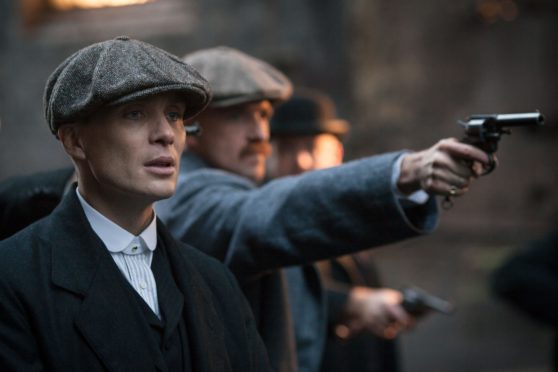
A virtual reality experience set in the world of Bafta-award winning TV series Peaky Blinders is to be developed with the help of Government funding.
The game, due to be released next year, will use cutting-edge artificial intelligence (AI) technology to enable the virtual characters to interact and respond to players’ gestures, movements, voice and body language.
The game is being produced by entertainment studio Maze Theory, which has been awarded funding by the Government’s Audience of the Future Programme to develop the game.
The developers said players will enter the criminal world of the show’s urban street gangs and attempt to complete a covert mission to defeat a rival gang, while visiting famous locations from the show, including the Shelbys’ illegal betting shop and The Garrison pub.
It will be created in partnership with Peaky Blinders distributor Endemol Shine Group, and brand owner and producer Caryn Mandabach Productions.
Business Secretary Greg Clarke, who awarded the funding, said: “Success stories like Oscar-winning Wallace And Gromit and Bafta-winning Peaky Blinders are part of the reason why our creative industries are truly world-leading – attracting audiences both here in the UK and internationally and helping create a sector already worth some £100 billion to our economy.
“It’s why through our modern Industrial Strategy we’re investing to build on this huge global demand for UK creative content and ensure we lead the world in the next generation of entertainment.
“This backing will also give our home-grown talent the opportunity to lead the way in creating and using virtual and augmented reality technologies, remain at the cutting edge and create thousands of highly skilled jobs.”
Maze Theory executive producer Russell Harding said he hoped this type of virtual reality experience would become the “future of entertainment”.
“This is Maze Theory’s first AI-enhanced immersive drama and we are incredibly excited about the unrivalled and entirely new experience this gives players,” he said.
“They will literally be part of Peaky Blinders’ world and be able to interact with characters in ways no one can predict. Fans of the cult show have been calling out for this type of experience and we’re honoured to be giving it to them. This is the future of entertainment.”

Enjoy the convenience of having The Sunday Post delivered as a digital ePaper straight to your smartphone, tablet or computer.
Subscribe for only £5.49 a month and enjoy all the benefits of the printed paper as a digital replica.
Subscribe